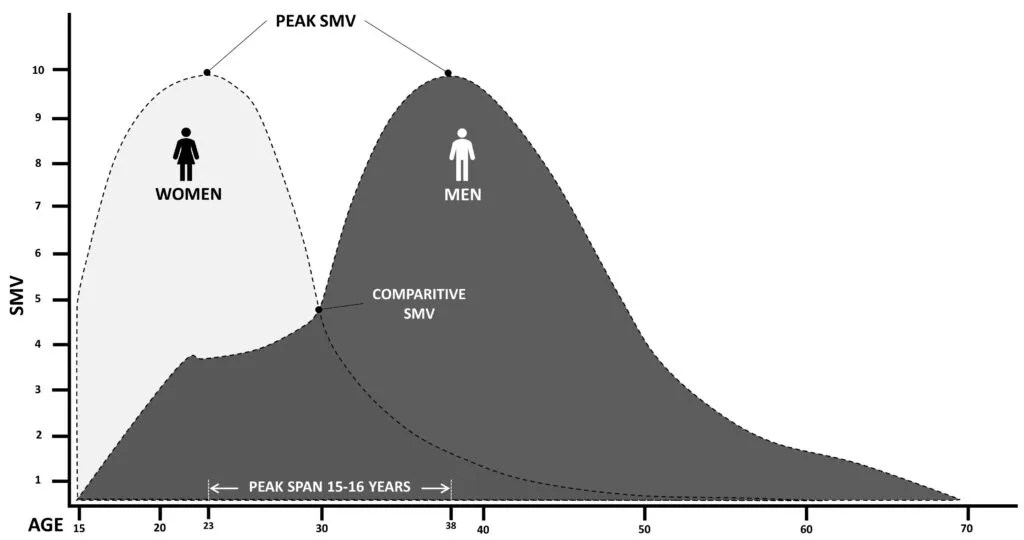Understanding The Concept Of Sex Value: More Than Just A Number
In today's society, the term "sex value" often raises eyebrows and sparks conversations that can be both enlightening and controversial. It encompasses a range of meanings, from the perceived worth of sexual attractiveness to the deeper implications of sexual relationships in our lives. As we navigate the complexities of modern dating and relationships, understanding sex value becomes increasingly important not just for individuals but also for society as a whole.
This exploration of sex value delves into how it affects personal relationships, societal expectations, and even self-esteem. It is vital to recognize that sex value is not solely about physical appearance; it also encompasses emotional intelligence, communication capabilities, and the ability to engage with others on a deeper level. In a world where social media often sets unrealistic standards, understanding the multifaceted nature of sex value can help us foster healthier relationships.
As we examine the various dimensions of sex value, we’ll consider questions such as: What factors contribute to an individual's perceived sex value? How do cultural differences shape our understanding of sex value? And importantly, how can one cultivate a positive sex value that benefits both themselves and their partners? By addressing these questions, we aim to shed light on the significance and implications of sex value in contemporary society.
What is Sex Value?
Sex value can be defined as the perceived worth of an individual based on their sexual attractiveness and desirability. It can be influenced by a variety of factors, including physical appearance, personality traits, social status, and cultural norms. The concept of sex value is not static; it can shift over time as personal circumstances change and societal standards evolve.
How Does Sex Value Impact Relationships?
In relationships, sex value plays a significant role in shaping attraction and emotional connection between partners. High sex value can lead to increased confidence and desirability, while low sex value may result in feelings of inadequacy and insecurity. Understanding one's own sex value and that of a partner can help establish a healthy dynamic in a relationship.
What Factors Influence an Individual's Sex Value?
- Physical Appearance: This includes body type, grooming, and style.
- Confidence: A confident demeanor can enhance perceived sex value.
- Social Skills: The ability to communicate and connect with others is crucial.
- Cultural Background: Different cultures have varying standards of attractiveness.
How Can You Improve Your Sex Value?
Improving one's sex value is not solely about physical transformation; it is a holistic approach that involves enhancing various aspects of life. Here are several strategies:
- Invest in Personal Grooming: Regular grooming routines can boost self-esteem.
- Work on Social Skills: Engaging in conversations and building rapport is essential.
- Focus on Fitness: Regular exercise can enhance both appearance and mood.
- Practice Self-Love: Cultivating a positive self-image is crucial.
Is Sex Value the Same Across Cultures?
Sex value is not universally defined; it varies significantly across different cultures. What one culture may deem attractive or valuable, another may not. Understanding these differences can provide insight into how we perceive ourselves and others in a diverse world.
What Role Does Media Play in Shaping Sex Value?
The media plays a pivotal role in shaping our perceptions of sex value. From advertisements to social media influencers, the images we consume can create unrealistic standards for attractiveness. It's vital to critically assess these influences and recognize that they do not define our worth or the worth of others.
How Can One Cultivate a Positive Sex Value?
Fostering a positive sex value involves embracing authenticity and self-acceptance. This can be achieved through:
- Engaging in Self-Reflection: Understand your unique qualities and strengths.
- Building Healthy Relationships: Surround yourself with supportive people.
- Seeking Personal Growth: Embrace lifelong learning and development.
Conclusion: The Importance of Understanding Sex Value
Understanding sex value is essential in navigating the complexities of personal relationships and societal expectations. By recognizing the factors that contribute to sex value and actively working to enhance our own, we can foster healthier relationships and improved self-esteem. Ultimately, it is crucial to remember that sex value is just one aspect of who we are, and true worth transcends mere appearance or desirability.
Article Recommendations
- Jude Bellingham Parents Nationality
- Travis Barker Divorce
- Chris Cuomo Wife
- How Old Is Laura Wright And Wes Ramsey
- Sarah Jakes Roberts Age
- Draper Myers Funeral Home Obituaries
- Kaitlan Collins Partner
- Dylan Obrien
- Katie Johnson Trump
- Nfl Minimum Salary


